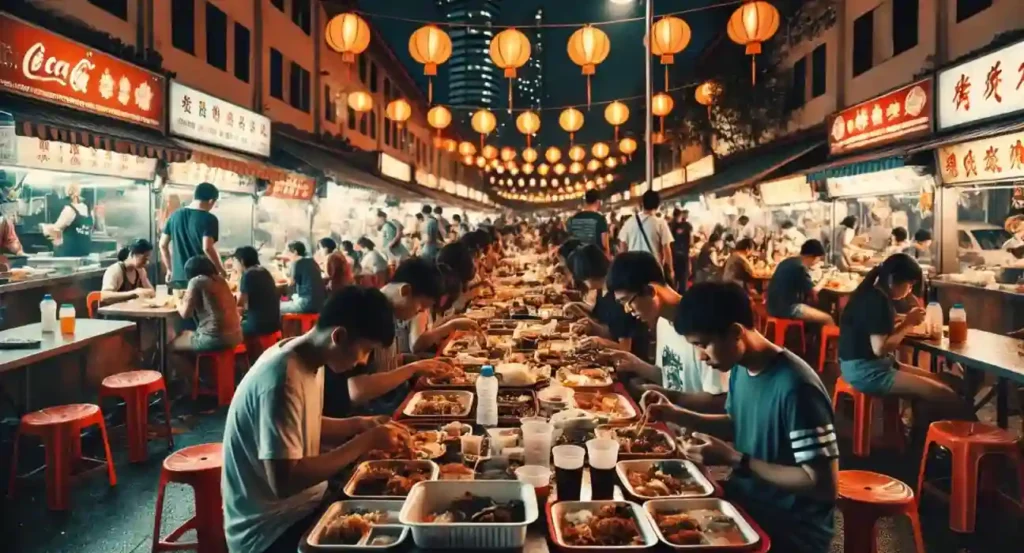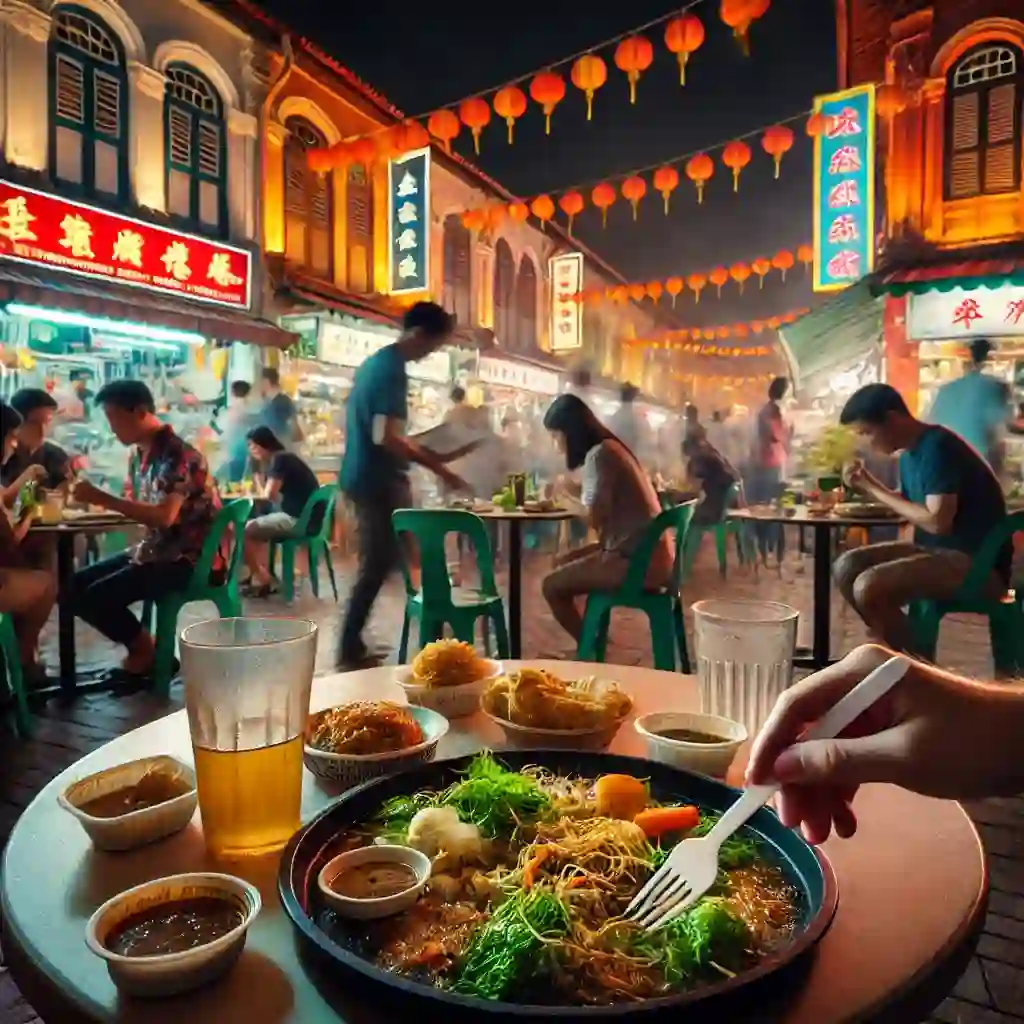Introduction
Chinatown hawker centers are vibrant food hubs, serving thousands of people daily. However, the growing practice of consuming hawker leftovers has sparked debates over health, ethics, and sustainability. This article explores the reasons behind this phenomenon, its risks, and possible solutions.
What Are Chinatown Hawker Leftovers?
Hawker leftovers refer to uneaten food abandoned by customers at food stalls. These include partially consumed meals or excess food that vendors discard at closing time. The practice of retrieving and consuming these leftovers is often linked to economic hardship and environmental consciousness.
Types of Hawker Leftovers
- Customer Leftovers: Partially eaten meals left on tables.
- Vendor Discards: Unsold food that stalls discard at the end of the day.
- Food Donations: Some food stalls set aside edible but unsellable food for collection.

Why Do People Consume Hawker Leftovers?
- Economic Hardship – People struggling financially may resort to eating discarded food to save money.
- Cultural Mindset – Some communities believe in minimizing food waste, making leftover consumption a norm.
- Environmental Consciousness – Reducing food waste helps curb excessive resource consumption.
- Social Norms – In some societies, communal eating and food sharing lessen the stigma of consuming leftovers.
Health Risks of Consuming Hawker Leftovers
Despite its economic and environmental appeal, consuming leftovers carries serious health risks:
- Bacterial Contamination – Food left at room temperature for extended periods becomes a breeding ground for bacteria like Salmonella and E. coli.
- Foodborne Illnesses – The risk of contracting diseases increases with improper food handling.
- Hygiene Issues – The unknown handling process of leftovers makes them unsafe for consumption.
- Cross-Contamination – Contact with used utensils, unclean surfaces, or pests poses additional hazards.
Ethical Concerns
While reducing food waste is crucial, eating leftovers raises ethical questions:
- Dignity and Human Rights – No one should feel forced to consume discarded food due to financial struggles.
- Moral Responsibility – Businesses and individuals should aim for responsible food distribution rather than waste.
- Public Perception – Normalizing leftover consumption might divert attention from addressing food insecurity structurally.
Government Regulations and Policies
Singapore has strict food safety regulations, including:
- Hygiene Standards for Food Vendors – Vendors must follow safety protocols to reduce waste without endangering health.
- Anti-Waste Campaigns – Encouraging responsible consumption and donation of excess food.
- Enforcement of Health Codes – Regular inspections ensure that food handling meets public health standards.
- Guidelines for Food Redistribution – Laws enable vendors to donate excess food safely to charities.
Sustainability and Food Waste Reduction
To combat food waste, several initiatives have been introduced:
- Food Rescue Programs – Collecting unsold food for redistribution.
- Public Awareness Campaigns – Educating consumers on responsible food habits.
- Zero-Waste Initiatives – Encouraging restaurants and hawker centers to adopt sustainable food practices.
- Incentives for Food Donations – Policies that encourage businesses to participate in food redistribution.
Community Solutions
Organizations such as Food from the Heart and The Food Bank Singapore play a vital role in:
- Redistributing excess food to those in need.
- Partnering with hawker centers to donate unsold meals.
- Organizing food-sharing programs that reduce waste.
- Establishing collection centers where the public can donate surplus food.

The Role of Hawker Centers in Food Distribution
Hawker centers can minimize waste by:
- Partnering with NGOs to donate unsold food.
- Implementing portion control to prevent excessive leftovers.
- Educating customers about responsible food consumption.
FAQs
1. Is it legal to eat hawker leftovers in Singapore?
While there is no direct law against it, food safety regulations discourage consumption of discarded food due to health risks.
2. Can hawker centers donate excess food?
Yes, many participate in food rescue programs, redistributing unsold food to those in need.
3. How can I help reduce food waste in Chinatown?
Support food banks, educate others on responsible consumption, and avoid over-ordering at hawker centers.
4. What are some safe ways to reuse leftovers?
Ensure food is properly stored and reheated, and consume within safe time frames.
5. Are there government programs addressing food waste?
Yes, Singapore has various campaigns and incentives to promote responsible food consumption.
6. What are some alternatives for those facing food insecurity?
Affordable meal programs and food banks offer safe options instead of consuming discarded food.
Conclusion
The consumption of Chinatown hawker leftovers is a complex issue involving economic, ethical, and health factors. While reducing food waste is important, prioritizing safety and dignity is crucial. Supporting sustainable solutions can create a healthier, more responsible food system.
